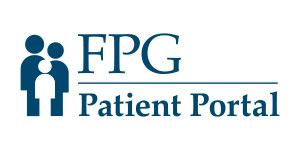With FPG General Surgeon Christopher Willkomm, MD
The human body is an incredibly complicated machine that relies not only on each specialized organ performing its function, but also on each of these organs staying in its proper place. A skeletomuscular system of strong bones and thick muscle walls usually accomplishes this, but problems can arise.
A hernia describes any instance in which organ tissue or fatty tissue is forced or squeezed through a weakening of the muscle wall holding it in place, often causing pain and discomfort. There are many different types of hernias, but they most often occur in the abdominal area and are most often the result of intense muscle strain.
“Hernias are not uncommon,” says Christopher Willkomm, MD, a First Physicians Group surgeon specializing in hernia surgery and anti-reflux surgery. “But they are very treatable and fixable, especially if we catch them early. You should never be afraid to talk to your doctor about any changes or discomfort that you believe may be caused by a hernia.”
What Is A Hiatal Hernia?
A hiatal hernia describes a hernia occurring at the hiatus, or the opening that allows the esophagus to pass through the muscle wall of the abdomen and connect with the stomach.
When everything is normal, the stomach stays below this muscle wall (known as your diaphragm), while the esophagus transports food from the mouth to the stomach.
But when part of the stomach squeezes through the hiatus, poking through the diaphragm and extending into the chest cavity, this is called a hiatal hernia.
Hiatal hernias are caused by increased pressure in the abdominal cavity. There can be many causes for this pressure, including coughing, vomiting, straining during a bowel movement, heavy lifting and other sorts of intense physical effort.
Pregnancy and obesity can lead to greater chances of a hiatal hernia occurring, as does increased age.
Smoking also places someone at greater risk of a hiatal hernia.
Signs & Symptoms
When a hiatal hernia is small, there may be no symptoms at all. But a sizable hiatal hernia can cause chronic and marked discomfort that affects your quality of life.
The most common symptoms of a hiatal hernia are:
- Bloating
- Belching
- Heartburn
- Acid reflux
- Difficulty swallowing
- Regurgitation
- Nausea
- Vomiting
- Chest pain
A more serious but far less common type of hiatal hernia, known as a paraesophageal hernia, can lead to much more severe symptoms, including: belly and chest pain, abdominal bleeding and anemia.
Left untreated, serious hiatal hernias can also lead to more severe conditions, such as:
- GERD (gastroesophageal reflux disease), which brings its own increased esophageal cancer risk
- Pneumonia
- Strangulation of blood flow to the stomach
“Even if the discomfort seems mild or manageable, it’s always best to check with your doctor about any recurring or chronic symptoms related to acid reflux,” says Dr. Willkomm. “Whether it’s a severe hernia or not, it’s best to know for sure and treat the issue before it possibly gets worse.”
Diagnosing A Hiatal Hernia
If a physical exam and symptom rundown point to a hiatal hernia as the culprit for your discomfort, the physician has a few options and tests they can run to confirm.
- Chest X-Ray – A quick x-ray may be enough to gather the necessary details for treatment.
- Upper Endoscopy – A thin tube with a camera at the end is inserted down the throat while the patient is sedated, allowing the doctor to see the inside of the esophagus, stomach and beginning of the small intestine.
- Barium Swallow – The patient swallows the barium fluid, which coats the inside of the esophagus, stomach and beginning of the small intestine, allowing for a more detailed x-ray image.
- Esophageal Manometry – A small tube is inserted through the nostril and down the throat, testing muscle strength in the esophagus and looking for problems with reflux or swallowing.
Treatments & Solutions
Most hiatal hernias do not require serious intervention, and many patients can manage any GERD-like symptoms through simple lifestyle changes, such as:
- Losing weight
- Decreasing portion size at meals
- Avoiding acidic foods, such as citrus and tomatoes
- Limiting caffeine, alcohol and fatty or fried foods
- Quitting smoking
Along with these lifestyle changes, over-the-counter antacids or prescription medications can be used to control acid levels within the stomach, reducing reflux.
For severe or chronic hiatal hernias that cannot be managed through lifestyle changes or medication, surgical options are available, including minimally invasive laparoscopic surgery. These surgical procedures may entail repositioning the stomach back where it belongs, resizing the opening through the diaphragm, or otherwise strengthening those sphincter muscles, so the hernia does not reappear.
“The pain, the discomfort, and the frustration that can come from living with a chronic condition like a severe hiatal hernia can be debilitating,” says Dr. Willkomm. “But we have so many treatment options at places like Sarasota Memorial Hospital, that no one should feel like there’s no hope. We will find a solution that works for you.”
Need Help Finding A Doctor?
If you think that you may be suffering from a hiatal hernia, click here to find the First Physicians Group specialist right for you.

Dr. Christopher Willkomm is a board-certified general surgeon who serves patients at FPG’s Medical Office Building in Venice. Please call (941) 261-2000 for appointments and information.


